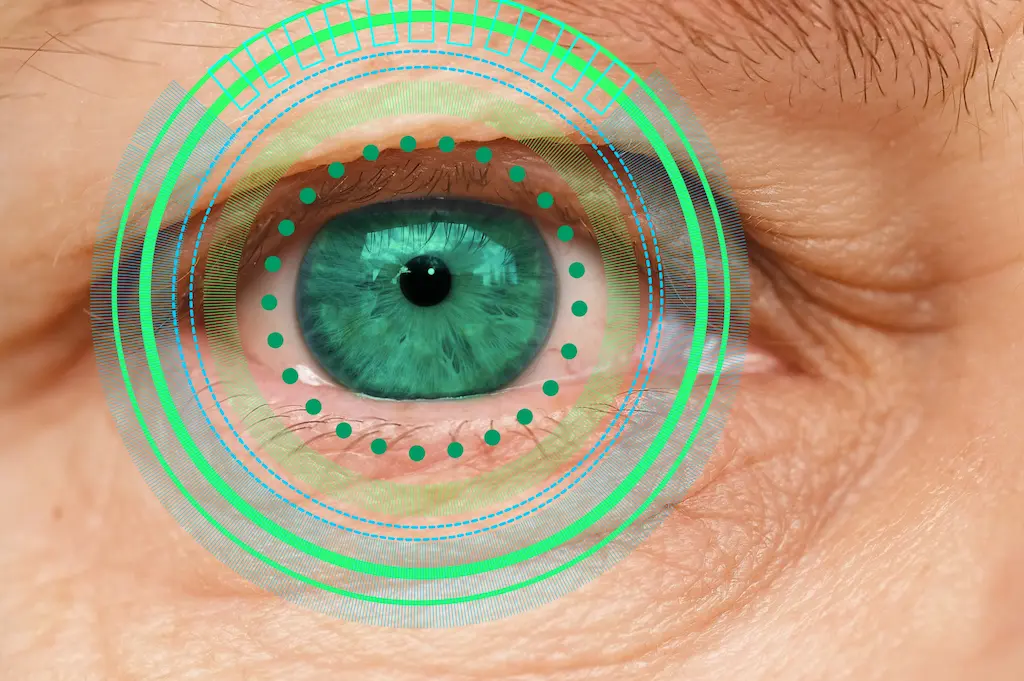
Updated: March 07, 2024

Yes, you can! As we reach our 40s and beyond, the lens in the eye changes its shape from elastic to stiffening into a plate-like shape, known as presbyopia. This process affects the majority of people by the age of 45, making it necessary for them to wear reading glasses or bifocals for correction. Despite this, individuals aged 40 and older can still get LASIK eye surgery in Kansas City.
Let’s debunk some myths around LASIK after 40 and explore other corrective vision procedures available to improve eyesight.
Monovision LASIK vision correction surgery is a laser eye surgery that corrects one eye for near vision and the other for distance vision. This technique is commonly used to correct vision in presbyopic individuals (over 40) who must wear reading glasses. By fixing one eye for near vision and the other for distance vision, the individual with vision impairment can achieve a full range of vision without needing glasses.
Monovision LASIK over 40 is also suitable for treating the following:

Patients aged 40 and older may be more likely to develop presbyopia, a vision problem commonly referred to as reading vision, and age-related farsightedness. Age-related vision changes such as presbyopia are caused by a gradual loss of flexibility of the eye’s lens, leading to blurred close-up vision used for reading, viewing photos, or working on the computer.
So, does LASIK work after 40? While LASIK surgery may address other vision problems, it likely will not wholly improve presbyopia, and patients over 40 will still require low-strength prescription reading glasses. Patients need to understand and be realistic about what’s achievable with LASIK at 40 and beyond.
In these cases, it is possible to have other types of presbyopia surgery other than LASIK laser surgery, which involves reshaping the cornea to correct the eye’s focusing power. Various techniques are used, such as photorefractive keratectomy (PRK) and conductive keratoplasty (CK).
When evaluating you for candidacy, your LASIK surgeon will take into account any age-related changes or fluctuations in your eyesight. Ophthalmologists generally assess elderly patients individually since overall eye health is considered, so it is beneficial to inquire. As with all medical procedures, there are pros and cons to LASIK eye surgery after 40.
To be a suitable candidate for LASIK, you:
Only a doctor specializing in eye surgery, such as the ophthalmologists at Discover Vision Centers, can decide if getting LASIK after 40 or RLE is suitable for you, despite the amount of information you may read about it.

If you can’t get LASIK after 4o years old, there are other surgery options to consider:
There is no age cut-off when it comes to having LASIK surgery. As long as you meet the criteria for eligibility, the procedure is safe. Even those over 40 or 50 years old can benefit from the procedure, which is an investment that is worth it compared to wearing glasses or contacts for the rest of their lives. LASIK after 40 can provide improved vision for a long time after the initial surgery, although it is important to have realistic expectations.
You should never let your age stop you from exploring vision correction possibilities. If LASIK after 40 years old isn’t possible, many other treatment avenues can improve your quality of vision and life. Take our LASIK self-evaluation quiz or schedule a virtual or in-person LASIK consultation with Discover Vision Centers in Kansas today. Our doctors are ready to help you!